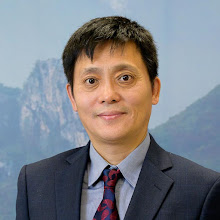Welcome
About Me
Monday, 24 August 2020
Wednesday, 19 August 2020
The use of Traditional Chinese Medicines to treat COVID 19 may cause more good than harm
Tiejun Tang
This morning I read an article from the
website of Professor Edzard Ernst. The article title is “The use of Traditional
Chinese Medicines to treat SARS-CoV-2 may cause more harm than good”. I totally
disagree with this opinion and after some investigation, I would like to change
a few words in the title of his paper -- "The use of Traditional Chinese
Medicines to treat COVID 19 may cause more good than
harm."
Actually Mr Ernst is not the author of
this article. This paper was originally published by two Australian doctors two
month ago [1]. Their conclusion was mainly based on an
article which was published by a group of Japanese doctors in 2017. It was a
Meta-Analysis paper. The author using PubMed and Ichushi-Web-the database of
the Japan Medical Abstracts Society to identify articles published between 1996
and 2015 describing patients with Japanese herbal medicine induced pneumonia.
They found that 73 patients have been diagnosed with pneumonia after taking
Japanese herbal medicine[2] . The mean age at pneumonia
diagnosis was 63.2 ± 15.5 years. The herbal formulas
they used were sho-saiko-to (小柴胡汤) (26%),
sairei-to (柴苓汤)(16%),
seishin-renshi-in (清心莲子饮) (8%)and
bofu-tsusyo-san (防风通圣散) (8%).These
formulas all are traditional Chinese medicine formulas which were widely used
for hundreds or thousands of years in China, but not for early stage common
cold or flu complaints. Chinese medicine diagnosis for early stage common
cold or flu is Taiyang syndrome and the treatment principle should be expelling
wind cold or wind heat. The indication of sho-saiko-to is Shaoyang syndrome and
of course it is not suitable for Taiyang syndrome. The other 3 formulas are all
not suitable for this stage of Taiyang syndrome. If the treatment missed the
target of diagnosis, it will not work at all.
In addition to the diagnosis problem, I
noticed that the mean age at pneumonia diagnosis was over 60. Elderly people
are easier to develop into pneumonia when they catch cold, that is common
sense. The conclusion of Mr Enomoto’s article was against the basic principle
of statistics -- age group differentiation.
Mr.Gray the author of that article
believes that the Chinese herb Scutellariae Radix (Huangqin) is the cause of
ARDS. Many of the Chinese medicine formulas which are used in Covid 19
treatment contain Huangqin. That is why he gets his opinion of more harm than
good. His evidence for this also came from a Japanese report [3]. In
this report only 5 patients have got ARDS after receiving the herbal treatment.
He uses this very small sample report to against the report from Dr Ren[4]
which includes 701 cases of Covid 19 with a positive result. From Mr Gray’s
article I cannot find any evidence based on a large sample RCT research or
laboratory research.
Mr Edzard Ernst is a very famous retired
professor and critic of Chinese medicine. We all benefit greatly from
constructive logically based criticism but this becomes wasteful and
distracting if the criticism is not based on the principles of medical
statistics, and is selective in it’s use of research results to support a personal
agenda. I would like to be able to say that this paper made a useful addition
to the discussion on the efficacy of Traditional Chinese Medicines in the
modern world, but unfortunately I cannot.
Just a few days ago, we received some
positive news from the US National Centre for Biotechnology Information (NCBI)
who stated that “overall,” treatment with the Chinese herbal medicine Lianhua
Qingwen for 14 days resulted in a “significantly higher rate of, and a shorter
time to, symptom recovery.” Their conclusion is "Traditional Chinese
medicine can help COVID 19 patients recover faster” [5]
I hope that every reader can have a
second thought about this topic. Always follow the science.
Reference:
- Paul E. Gray.
The use of Traditional Chinese Medicines to treat SARS-CoV-2 may cause
more harm than good. Pharmacol Res. 2020 Jun; 156: 104776.
- Enomoto Y.
Japanese herbal medicine-induced pneumonitis: a review of 73
patients. Respir. Investig. 2017; 55:138–144.
- Osamu
Sakamoto. Clinical and CT characteristics of Chinese medicine‐induced acute
respiratory distress syndrome. Respirology 2003;
8(3):344-50. doi: 10.1046.
- Ren J.L.
Traditional Chinese medicine for COVID-19 treatment. Pharmacol.
Res. 2020:104743.
- https://www.onenews.ph/us-health-agency-says-traditional-chinese-medicine-can-help-covid-19-patients-recover-faster

